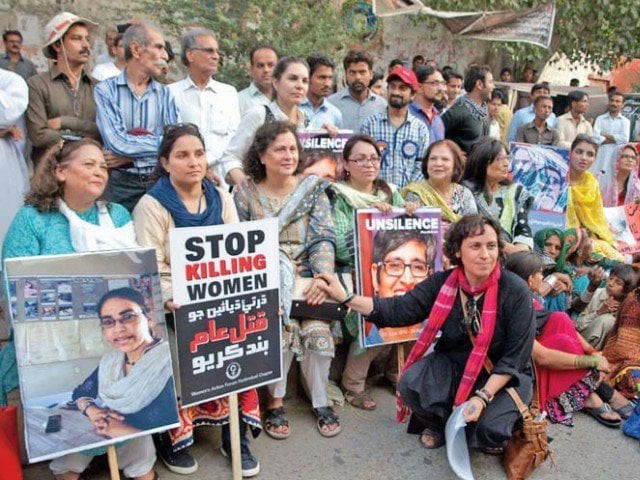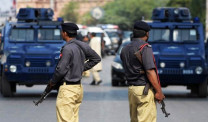Tale of women: Restricted opportunities and justice
Commission on women launches three studies

Commission on women launches three studies. PHOTO: FILE
Women in Federal Civil Services
The study by Homer Jan Baloch and Kaiser Bengali analysed data of women in the public sector for 2013. The report found that women account for only a meagre 4.5% of officers in the civil services.
At the higher level — basic pay scale (BPS) grade 17-22 — this percentage falls to less than one-fifth at 19.3% with 92 women in grade 20, 33 in grade 21 and just five in grade 22.
Curiously, the President’s Secretariat has only one woman amongst the 74 officers between BPS 17-22 working there. However, it seems most of these officers work under that woman since she is in grade 22.
On the other hand, the Prime Minister’s Secretariat has a strength of 188 officers in BPS 17-22. Of these, 15 or just eight per cent are women. Most of these women or 80% were serving in BPS 17-19, with three officers in grade 20, but none in grade 21 or 22.
In the Supreme Court, there were only 113 women working in BPS 17-22 accounting for around 6.2% of total staff. Of these, only two were BPS 22 and one in grade 21 and the rest in BPS 17-20.
In the National Assembly, 5.1% of employees were women. The Senate fared little better at 9.2%.
Access to justice for sexual assault survivors
In the study conducted by Sohail Akbar Warraich with assistance from Hiba Akbar and Anum Asif Bajwa, the research examined cases of sexual violence with regard to the Protection of Women (Criminal Law Amendment) Act, 2006 and how higher courts have treated these cases.
The report reviewed two law journals and noted that in 18 cases of appeal in rape offences and in 13 out of 18 appeals against convictions were rejected. This meant that convictions and sentences of trial courts were upheld with minor modifications in only two cases. This, the report said, revealed a worrying trend that between 2006 and 2015 when 96 bails (pre or post-arrest) cases were reported with 70 granted.
It also reveals from 2006 to 2015, 22 police stations of Islamabad registered 153 rape cases.
Amongst these, until October 2015, there were convictions in only four of these cases. By comparison, there were 48 acquittals while 64 cases are still in courts. As many as 27 FIRs were also cancelled during investigations and one case was formally recorded as having been ‘compromised’.
Evidently, despite so years of law reforms, victims of rape and other sexual offences are unable to access justice.
“Investigation remains fixated on the idea of virginity, finding semen stains and bruises on the survivor’s body. The attitude of the state institution has not seen any significant change in providing protection to women.”
Women, violence and jirga
A research by Nazish Brohi reflected the evolution and contemporary role of jirgas and its anti-women practices, its prevalence and interface with the formal legal system.
The report noted that jirgas continue to pose a challenge to the formal justice system as it evolves from consensus, grapples with mutation of the old concept of jirgas apart from the problematic constitution of jirgas which traditionally have no representation of women.
Published in The Express Tribune, December 15th, 2017.



















COMMENTS
Comments are moderated and generally will be posted if they are on-topic and not abusive.
For more information, please see our Comments FAQ